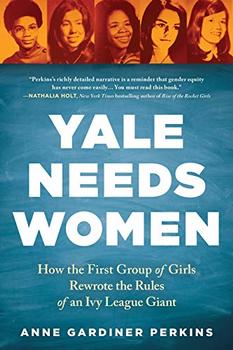Summary | Excerpt | Reviews | Beyond the book | Read-Alikes | Genres & Themes | Author Bio

The Inspiring Story of the Team That Barnstormed Its Way to Basketball Glory
by Lydia ReederI'm giving Lydia Reeder's Dust Bowl Girls, about a 1930s women's amateur basketball team and their gristly coach, high praise. From me – a person who closes her eyes and ducks when a ball is thrown to her – this is significant indeed. But I was immediately taken by Coach Sam Babb, Reeder's distant relative, who devoted his life to women's basketball and to developing a trophy-winning women's basketball team during the early years of the Great Depression.
It's possible that Reeder has romanticized this larger than life figure due to his professional accomplishment, but he's also an easy hero to like. Born in 1891 to a fire-and-brimstone preacher, Sam lost his leg at his father's own cruel and unyielding hand while protecting younger siblings from the man's scorn. He eventually questioned the God his father portrayed and turned, instead, to the one portrayed by his more gentle-natured older brother. Ultimately Sam decided, "the God that people imagined inside themselves, whether judgmental and punishing, or loving and compassionate, must reflect the emotions they lived with everyday."
This was a decision that guided his life. Sam became a unique combination of strength tempered by compassion – especially while working with the young women he recruited for his team, the Oklahoma Presbyterian College Cardinals. Even though a pretty good girls basketball team was probably enough to attract spectators, Babb wasn't aiming for pretty good. He knew he could build a trophy-winning team by venturing out into the field and recruiting. As Reeder puts it, "His constant search resembled the hunting technique of one of those black crowned night herons that sat patiently for hours along streams and creeks, their hunched necks moving only when the perfect fish wiggled by. Babb searched and searched because, for him, possessing the sportsmanship trophy wasn't enough. He knew they could do better. And by the time he finished, thirty-five new recruits agreed to start at OPC in the fall of 1931, all with dreams and bright hopes for the future."
He knew the kind of hardships these young women had grown up in, how they got up in the dark to milk cows, drive plow horses, haul feed for cattle and help with household chores. All while going to school. All while stealing spare moments to exercise their passion: playing basketball. They, more likely than not, honed their skills on hard dirt courts, under searing sun, or in bitter cold.
The young women, with the exception of a smart 16-year-old named Lucille Thurman, were 18 and older. But at whatever age, the opportunity to go to college on a scholarship just for playing the game they loved was already a dream come true. However Babb inspired bigger dreams. And so he encouraged, he drove, he expected them to reach higher, work harder, give more than they thought they could. All while remaining humble enough to recognize they were part of a team. Not everyone who started in the fall made it to winter. Several dropped out for one reason or another, but the hard work likely had something to do with it.
Making the team meant waking at 3:00AM in order to hit the court by four because between 4:00 and 6:00AM was the only time they could use the men's court. In winter the heat wasn't turned on in the building till 5:00AM. The sacrifices – of which Babb's rule of no sweets and snacks was the least – were real, the effort demanding, and the rewards meager. No stars or celebrities the likes of self-aggrandizing opponent Babe Didrikson were allowed on Babb's team. Equally challenging was the widespread prejudice against women in sports.
Babb's Amateur Athletic Union (AAU) was at odds with the general consensus that held that women ought not to participate in competitive sports. The reasons sound ludicrous to our 21st Century ears – women's bodies must be kept soft, their pelvic muscles pliable for carrying and delivering babies, women shouldn't be competitive because competition was for men. Remaining agreeable and easygoing was a woman's role in order to maintain a so-called balanced society. Women shouldn't be allowed to travel down the road of "athletic perdition."
Despite these challenges, Samuel Babb and the Oklahoma Presbyterian College Cardinals prevailed. Whether it's for the chance to learn more about Babb, or about a time when women athletes were just beginning to wend their way to Title IX rights or to read about how a team of Oklahoma girls worked their way to win the championship, Dust Bowl Girls is top-notch.
![]() This review was originally published in The BookBrowse Review in April 2017, and has been updated for the
November 2017 edition.
Click here to go to this issue.
This review was originally published in The BookBrowse Review in April 2017, and has been updated for the
November 2017 edition.
Click here to go to this issue.

If you liked Dust Bowl Girls, try these:

by Karen Russell
Published 2025
From Pulitzer finalist, MacArthur Fellowship recipient, and bestselling author of Swamplandia! and Vampires in the Lemon Grove Karen Russell: a gripping dust bowl epic about five characters whose fates become entangled after a storm ravages their small Nebraskan town.

by Anne Gardiner Perkins
Published 2021
"If Yale was going to keep its standing as one of the top two or three colleges in the nation, the availability of women was an amenity it could no longer do without."
Judge a man by his questions rather than by his answers.
Click Here to find out who said this, as well as discovering other famous literary quotes!
Your guide toexceptional books
BookBrowse seeks out and recommends the best in contemporary fiction and nonfiction—books that not only engage and entertain but also deepen our understanding of ourselves and the world around us.